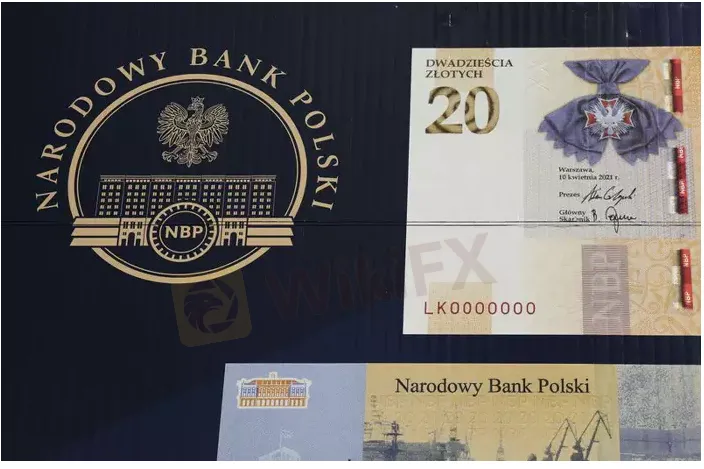简体中文
繁體中文
English
Pусский
日本語
ภาษาไทย
Tiếng Việt
Bahasa Indonesia
Español
हिन्दी
Filippiiniläinen
Français
Deutsch
Português
Türkçe
한국어
العربية
Polish central bank in wait-and-see mode, says governor
Abstract: The National Bank of Poland (NBP) will wait until its next inflation projection in November before deciding if more policy tightening is needed, its governor said on Thursday, after the Monetary Policy Council (MPC) decided to leave rates on hold.

The National Bank of Poland (NBP) will wait until its next inflation projection in November before deciding if more policy tightening is needed, its governor said on Thursday, after the Monetary Policy Council (MPC) decided to leave rates on hold.
Wednesdays decision to leave the main interest rate at 6.75% followed a run of 11 consecutive hikes, and left markets wondering if the move marked the end of the cycle or if policymakers were merely taking a break.
“This is a pause in the rate-hike cycle, but not the formal end of the rate-hike cycle,” Adam Glapinski told a news conference.
“In November another inflation report will be published, which … is the most important document that allows one to look at the coming quarters in the best way.”
Glapinski reiterated his view that inflation in Poland was mainly caused by external factors, but said there were signs that shocks in commodity markets that had fuelled price growth were easing and that he expected inflation to fall in 2023.
The Polish zloty softened as Glapinski spoke, and was down 1.36% against the euro at 1500 GMT.
“Theoretically, the NBP governor is declaring that this is not the end of the rate-hike cycle, but the zloty has weakened since the beginning of the conference, as many other comments from the governor indicate that the end is near,” ING analysts said on Twitter.
“We hear a lot about disinflationary factors, but little about inflation risks, which can be worrying.”
The Polish decision to leave rates on hold came as other central banks in central Europe had signalled an end to their policy-tightening cycles.
In Hungary the central bank raised its base rate by a larger-than-expected 125 basis points to 13% in September but said it was ending its rate-hike cycle amid a slowing economy, while in the Czech Republic policymakers kept rates steady at 7.00% for a second time in a row.

Disclaimer:
The views in this article only represent the author's personal views, and do not constitute investment advice on this platform. This platform does not guarantee the accuracy, completeness and timeliness of the information in the article, and will not be liable for any loss caused by the use of or reliance on the information in the article.
Read more

Unmasking the ‘Datuk’: The Anatomy of a RM638,205 Investment Scam
Authorities in Malaysia have launched an extensive investigation into a fraudulent stock investment scheme, which has resulted in losses amounting to RM638,205.

Unmasking the ‘Datuk’: The Anatomy of a RM638,205 Investment Scam
Authorities in Malaysia have launched an extensive investigation into a fraudulent stock investment scheme, which has resulted in losses amounting to RM638,205.

ATFX Enhances Trading Platform with BlackArrow Integration
ATFX integrates the BlackArrow trading platform, offering advanced tools for forex, crypto, and stocks with automation and real-time analytics for traders.

Exposing the Truth: What Happened with the Losses of Thousands of Dollars on the GlobTFX Platform?
The facts are clear and undeniably shocking—GlobTFX has caused significant financial losses to well-known traders in the Arab world. Eighteen victims have confirmed a total loss exceeding $22,372! But this is just the tip of the iceberg…
WikiFX Broker
Latest News
Germany's Election: Immigration, Economy & Political Tensions Take Centre Stage
WikiFX Review: Is IVY Markets Reliable?
Brazilian Man Charged in $290 Million Crypto Ponzi Scheme Affecting 126,000 Investors
Become a Full-Time FX Trader in 6 Simple Steps
ATFX Enhances Trading Platform with BlackArrow Integration
IG 2025 Most Comprehensive Review
SEC Drops Coinbase Lawsuit, Signals Crypto Policy Shift
Construction Datuk Director Loses RM26.6 Mil to UVKXE Crypto Scam
Should You Choose Rock-West or Avoid it?
Franklin Templeton Submitted S-1 Filing for Spot Solana ETF to the SEC on February 21
Currency Calculator






